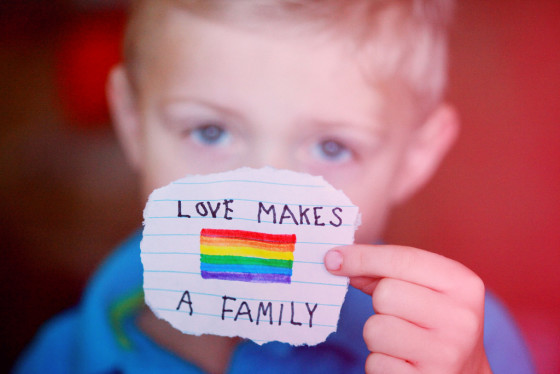This pregnancy business has given me a lot of time to reflect on just how heteronormative and ciscentric baby-making and baby-having processes are as well as how many unhelpful assumptions we human beings tend to make about all sorts of things. A concrete example illuminates what I mean: Imagine a couple composed of a cisgender woman and a trans man. They decide they want to become parents via the cisgender woman's eggs and a donor's sperm. They go to a fertility clinic because that is where procedures like intrauterine insemination and in-vitro fertilization happen. Because they are read by the staff as a straight, cisgender couple, they get two intake forms: one for the female and one for the male. Both forms were created with the following assumptions in mind: the woman has two x chromosomes, a vulva, a uterus, fallopian tube(s), and ovary/ies; the man has a x and y chromosome, a penis, and testicle(s); at least one member of the couple has fertility issues. Now it may be true that the man is sterile if he had his reproductive organ(s) surgically removed. But that infertility is not due to a "malfunctioning" penis, sperm, or testicles. In fact, if we are looking for trans men's reproductive stories, a more likely scenario is revealed in Alexis Light's study of 41 trans men--the majority of whom had undergone hormone treatment (i.e taken testosterone)--who became pregnant or gave birth. But I digress from the illustration.

Now if the fertility clinic is sensitive and knowledgeable about LGBTQ+ people, which remains a big if in 2015, the couple can let the clinic staff know that the male intake form is largely of no use and carry on with the process of trying to conceive a child in a welcoming environment. Ideally, the fertility clinic will revise its intake process, perhaps by simply beginning it with an open-ended question about what brings the patients to the clinic, without assuming there is a "problem" with one or both members of the couple or asking a bunch of questions about their presumed genetic make-up and body parts that are irrelevant to the situation at hand.
Avoiding a deficit-oriented approach can seem tricky since many queer folks are indeed missing an ingredient needed for conception. But what a difference medical providers can make for patients, especially when they are already feeling vulnerable from the parenthood journey, if they emphasize what the patients will be adding to the mix--in the above case sperm--rather than that the patients needs to make up for what is lacking (and I would assert that this argument applies to folks struggling with infertility, too). Adding a sperm donor to the picture certainly makes things more complicated for the couple in this case study. Legal and financial considerations abound and, perhaps more importantly, ethical questions about whether children have a right to know who their biological parents are as well as psychological considerations about how knowing or not knowing who contributed to half their genetic make-up may impact children down the road. Moreover, the individual not contributing genetic material to the conception process may need to make peace with this reality if they have not already. Nevertheless, promoting a sense of wholeness for these wannabe-parents, and definitely treating both patients as the "real" parents of the hoped-for child, sure could make an already daunting process significantly more inviting.
Now I will broaden the case study to LGBTQ+ people more generally, as the assumptions really go haywire once conception has happened. Unfortunately I know far too many individuals who, because they did not look the part of dear old mom and dad, faced significant micro and more macro aggressions throughout pregnancy and after their babies were born. For example, in Light's study, which I mentioned earlier, the pregnant male participants "recalled numerous insensitive comments and exchanges, both in public and in doctor's offices...This included receiving uncomfortable stares, suspicion, hostility, being misgendered, being turned away from prenatal care, and even being reported to Child Protective Services."
We can do better than participate in such mistreatment, of that I am confident. But we have to be willing to look at our assumptions about reproduction, pregnancy, and parenting--particularly who gets to engage in these activities--to do so. One perspective I find instructive is Pavel Somov's suggestion that we use "emotionally pragmatic assumptions" rather than "entitled presumptions." As he wrote,
Both an assumption and a presumption are ways of dealing with the unknown. To assume is to suppose that something is, was, or will be the case without evidence or proof. To presume is to take for granted that something is, was, or will be the case. Thus, an assumption is a tentative hypothesis and a presumption is an inflexible expectation...When faced with some crucial unknown, allow yourself to formulate an emotionally pragmatic assumption [or belief that helps you survive uncertainty with the minimum of distress] without letting it become an inflexible expectation. Recognize that just because you have a preference for a certain version of the future, that doesn't mean reality will comply. Reality owes us nothing.
To try to eradicate assumptions is unrealistic, as human beings rely on them to get through each day. Pavel points out that we assume such mundane things as that our alarm will work and we will wake up the next morning. I'm most interested in what we do when we realize our assumptions are in conflict with reality. Do we cling more tightly to our beliefs and insist that the knowledge challenging them is a lie? If we go this route, are we willing to investigate what is driving such fierce determination to hold onto what should be rather than what is? In my experience, fear is the instigator of such steadfastness much of the time. Acknowledging and working with that fear, which is ultimately the anticipation of loss, helps to defuse it so that there is more space for new knowledge to be integrated into, rather than rejected from, our current understanding of the world and the people in it.
A challenge to myself and anyone reading this, then, is to remind ourselves continuously how much we do not know about the people we encounter in our daily lives. People's appearances, in particular, provide great fodder for inquiry on what we actually know about the individuals before us and an opportunity to open to the multitude of possibilities made possible by the complexity of human beings. Once we recognize what we do not know, we have more options for proceeding in ways that increase understanding more than promulgate misconceptions. Although not everyone wants to share their story, most people appreciate being asked who they are rather than being told who they must be or who they are not. To borrow from Andrew Solomon, “Remember...that it is nearly impossible to hate anyone whose story you know...If you can give language to experiences previously starved for it, you can make the world a better place.”

